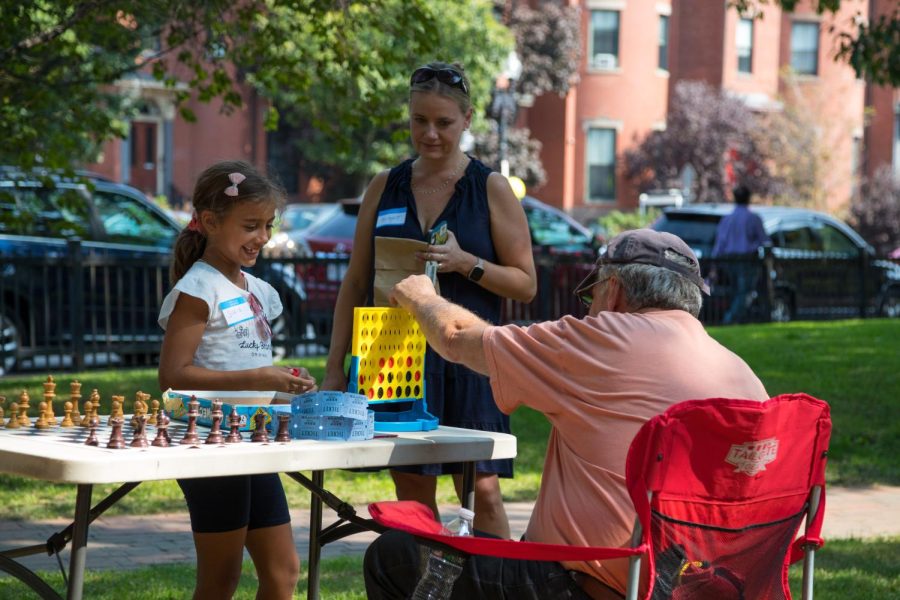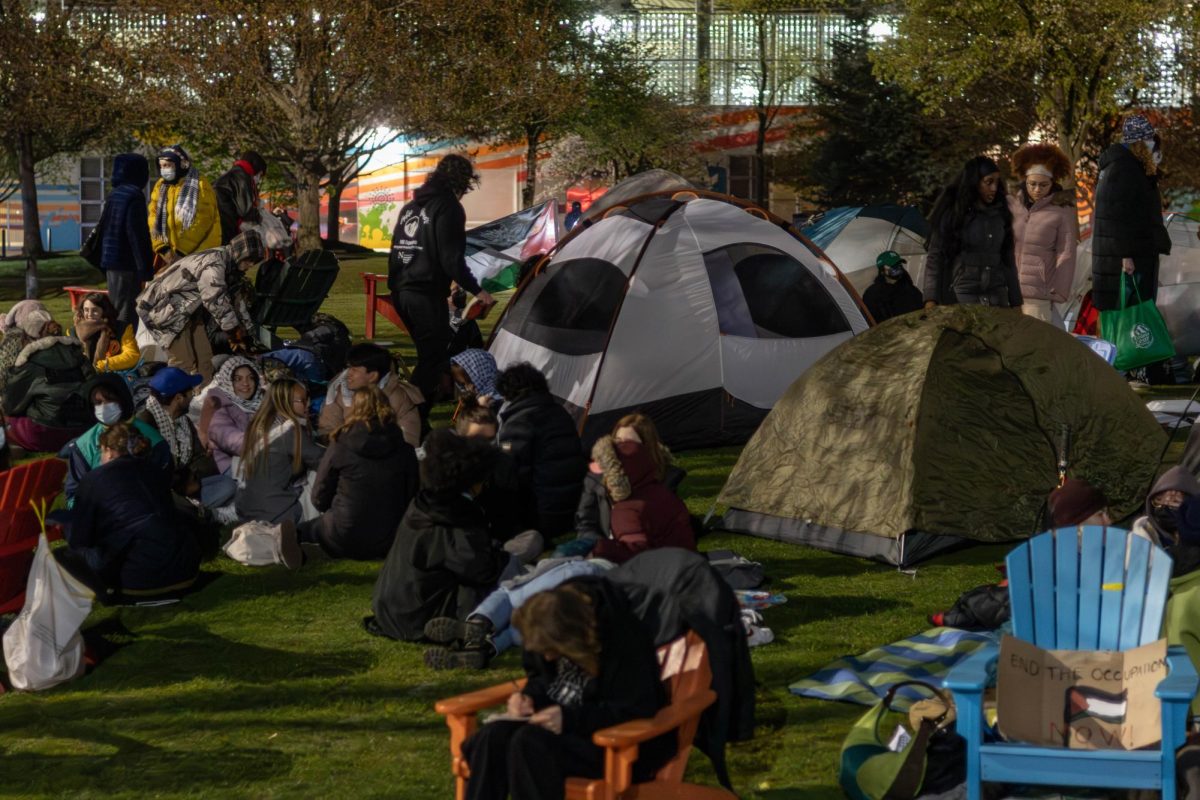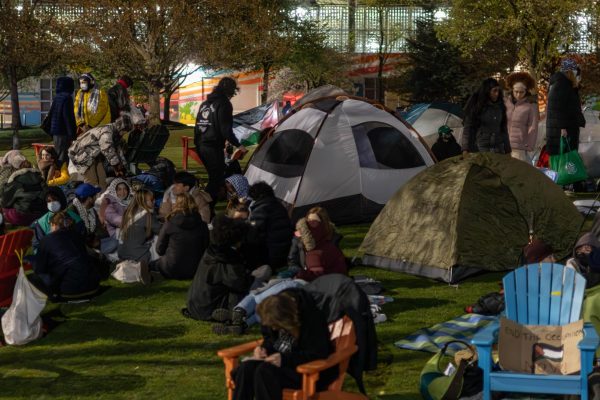Mass Ave Coalition festival builds community
The Mass Ave Coalition welcomes residents to Chester Square Park for the Fall Festival. Events at the festival included games and jazz music. Photo courtesy of Moli Luo.
October 2, 2022
Divided by Massachusetts Avenue, Chester Square Park consists of two halves of shaded green space, complete with fountains and benches. The park was the site of the Mass Ave Coalition’s Fall Festival on Sept. 18, described by organizer Carol Blair as “a festival like no other.”
The Mass Ave Coalition is a nonprofit organization that aims to build a sense of community along Massachusetts Avenue, commonly referred to as a Mass. Ave. Its goals include improving public health, transportation and streetscape.
Blair, a member of the coalition team and president of Chester Square Neighbors, played an instrumental role in planning the festival.
“The Chester Square [neighborhood] is bisected by Mass. Ave., and we find it very difficult to build community,” Blair said, in reference to the six lanes that run through the middle of the park. “Two different people told me they crossed the street to the other [half] of the park for the first time.”
Chester Park was originally one large park, established in the 1850s. However, in the 1950s, after the establishment of the Southeast Expressway, civil and urban planners were at a loss for how to direct traffic through the city. They replaced the majority of Chester Park with a busy road, resulting in the remaining two halves of the park.
The idea of connecting the two sides of the park and the Chester Square neighborhood was woven throughout the festival. Two groups from Jazz Boston, a local jazz performance troupe, played music — one group was stationed on the left half of the park, while the other group was on the right side.
“We have the institutions and residents, neighbor associations, all working together to try to understand who we are … and what we can be,” Blair said. “We want to be more of a connector, and less of a divider.”
When the Coalition was brainstorming ideas to foster community, having an event was a popular idea.
“People love events,” Blair said. “If you do an event, everybody joins in.”
Blair, a seasoned planner, said she made a point to include a variety of activities: a kiddie pool filled with rubber ducks was available for the kids, additional game stations made for a playful atmosphere and a popcorn machine provided a snack for attendees. Some areas of the park were left as they were, allowing attendees to appreciate the green space around them.
Numerous local organizations were present at the festival, including the City of Boston Transportation Department. The organization was taking suggestions from festival attendees on how to improve the surrounding streets and make them more pedestrian and bicycle friendly. Additionally, organizers used the event space to advertise Bluebike passes and initiatives to improve Columbus Avenue and streets in the lower Roxbury area.
Students in a Northeastern data science class called “Information Visualization & Presentation” were also present. They collected data from the attendees on their favorite places in the Mass. Ave. area and changes they wanted to see in the community. Assistant professor Michelle Borkin, who teaches the class, accompanied her students.
“Every semester we partner with different Boston area nonprofits and work with the Service Learning program at Northeastern,” Borkin said. “The students will gather data and get data from the organization, use it for their final projects and do data analysis reports. They’ll make interactive visualizations … then we give it back to the nonprofit organizations … It’s this mutual exchange where students get to have real experience with a real client and make a real difference in their community, and the community benefits.”
The students also set up posters so festival attendees could write down their favorite places in the area and suggestions for changes they wanted to see in the community. The class will then turn these responses into a data set, so the Coalition can implement the changes that the community wants to see.
“It [also] helps [the students] understand that the skills they’re learning in class have an impact outside of the classroom,” said Uzma Haque Syeda, a fifth-year computer science Ph.D. student with a concentration in data visualization who was also volunteering at the event.
Many local businesses supported the festival.
“Everyone was asking what else they could do for the festival,” Blair said. “The manager of Party City … was very helpful and gave us a couple raffle prizes.”
Blair said that the atmosphere was very calm and “mellow,” maximizing the potential for community building.
“Lots of people have said they met new people,” Blair said. “People are thinking of the park in a new way; someone who has been in the neighborhood for a long time … said, ‘My kids are playing in the park … We should do this all the time.’”


















